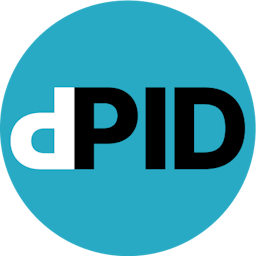Come join the community of researchers and developers working to bring dPIDs to life
The era of FAIR science needs a new PID technology
Come join us in the quest to build a secure, interoperable, and machine actionable scientific record.
Learn about prominent open-source innovations coming from the decentralized web
From data networking to self-sovereign identity, the dPID working group gives you the opportunity to gain expertise with these foundational technologies built for the next era of the Web.
The Sidetree is a protocol for creating scalable decentralized identifier networks. dPIDs build on Sidetree to create identifiers for research artifacts.
DIDs are are a new type of identifier that enables verifiable, decentralized digital identity. Join us to learn all about DIDs and their application to science.
Come and learn all about recent development in IPFS as well as other protocols for content-addressed data networking.
Interested? Here is how to get involved
Looking for a quick overview of the group? The dPID Working Group Prospectus contains a “Why dPID” one-pager alongside WG sought outcomes, objectives and artifacts that the dPID working group is working towards.
Come join the conversation! Day-to-day communications happen over the dPID mattermost channel. It is open to anyone who wants to be a part of building the dPID system. Come say hello, ask questions, and familiarize yourself with the inner workings of dPID.
Want to stay informed but don’t have the time to join calls? The dPID email thread uses google groups to give you updates and announcements. You can stay up-to-date on dPID and join the conversation when your schedule allows.
Open Source code is a must-have for open science tooling. Learn about the implementation of dPID first-hand by browsing the GitHub repository. All code is open on an MIT License, feel free to give a star and make contributions.
